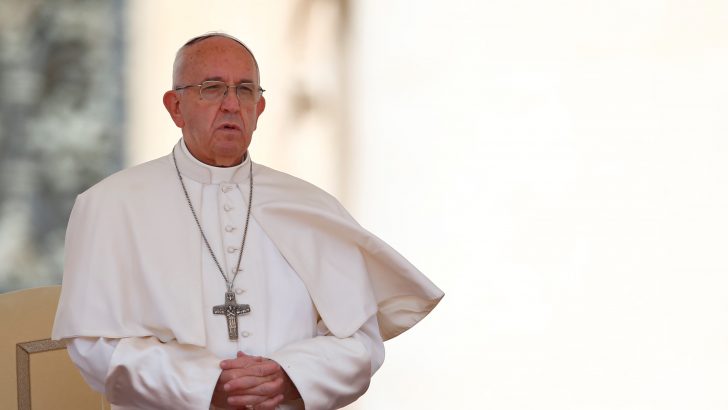Unfortunately it is the turn of the Catholics to be portrayed as the ‘creepy…smarmy’ baddies, writes Mary Kenny
I remember some years ago seeing a cartoon depicting a Native American father and son, both wearing the head-dress of the Navajo (or Sioux) people. They were sitting in front of a cinema showing a movie depicting old-style “Cowboys & Injuns in the Wild West”.
In the dialogue bubble, the little boy was asking his father: “Daddy – are we the baddies?”
Well, cowboy movies of the Wild West have changed since the days when the ‘Injuns’ were portrayed scalping the white man and the US Cavalry would ride to the rescue.
But the cartoon must have lodged in my sub-conscious, because it came back to me when I went to see Spotlight – the new film about the Boston Globe disclosing the way in which clerical scandals in Massachusetts had been kept under wraps by Cardinal Bernard Law.
It’s a movie covered with laurels and great reviews, and has attracted many Oscar nominations.
It stars Mark Ruffalo, Michael Keaton, Rachel McAdams and an actor I especially esteem, John Slattery.
And thus a revised version of that question from the old cartoon occurred: “Are we the baddies now?” Catholics, that is.
The movie is centred on a group of journalists, back in 2001, uncovering a local scandal that had never been properly probed: that perhaps 70 priests around the Diocese of Boston had been stood down from their duties because they had offended in this way – but for the most part, victims had been paid off in a confidential behind-closed-doors deal. And the legal record kept secret.
The film is well done, technically: well acted and well directed. In terms of human psychology, or exploring the human psyche, I think it’s rather shallow. And it seems to imply that all Catholics are creepy, even smarmy, apologists for paedophilia and the only decent Catholic is a lapsed one (just like the reporters from the Boston Globe – all identified as lapsed.)
“Are we always the baddies, Daddy?” Methinks the answer, for Catholics, is yes. The poor old Native Americans were the ‘baddies’ in Westerns for the best part of 50 years; now it’s our turn.
Taxes are an ideological issue
President Higgins has warned against politicians competing against one another to offer tax cuts to the public in the coming election, asking: “Is it possible to have a decent society and at the same time continue to lower taxes for the purposes of securing the best short-term benefit?”
I’m no economist, but even I understand the principle of the ‘Laffer curve’, which explains that lower taxes can sometimes provide more revenue for the exchequer (and thus for social welfare projects).
The Laffer curve claims that if you keep taxes high, people will dodge them whenever they can; they will also choose to stay on welfare benefits rather than work. Whereas if you set taxes at a lower scale, people will pay them more willingly – because they recognise that they are fair – and work itself will also become more attractive.
Therefore, the promise of lower taxes isn’t always and inevitably for ‘short-term’ benefit. It can, genuinely, be a concept suggested for the common good, and in the best interests of a long-term social goal.
There is an ideological cleavage here: for the left, taxes are a moral issue. For the right, it’s simply pragmatic.
Leap year proposals
We’re in a leap year February this year, and I sincerely hope that, if there are any ladies out there who feel like proposing to their beaux on this coming February 29 that they will just go ahead and do so.
It’s an old tradition that leap year allows women the prerogative of proposing marriage, and a very pretty tradition it is too.
Of course, in modern times, there is no strict protocol about who should propose to whom. A gal can suggest marriage whenever she pleases, but Leap Year does provide a special opportunity, just the same.
It is a universally acknowledged fact that guys are slower to commit to wedlock: being 30 years old, say, is no big deal to the male of the species, and they’re often in no hurry to tie themselves down.
This has led to a well-known category of fellow described as the ‘commitment-phobe’. He’s happy to be in a nice relationship, but he won’t commit.
It’s just not the same for women. At 30, the biological clock starts to tick more audibly, and plans often need to be formed around this point.
Women should boldly affirm their hopes and expectations of marriage if this is where their heart’s desire lies: to do so is a positive and inspiring form of feminism.
So – go for it!
After all, it’s never rude to ask. And a refusal will, in the long run, probably save everyone a lot of time, trouble and regret for lost time.


 Mary Kenny
Mary Kenny